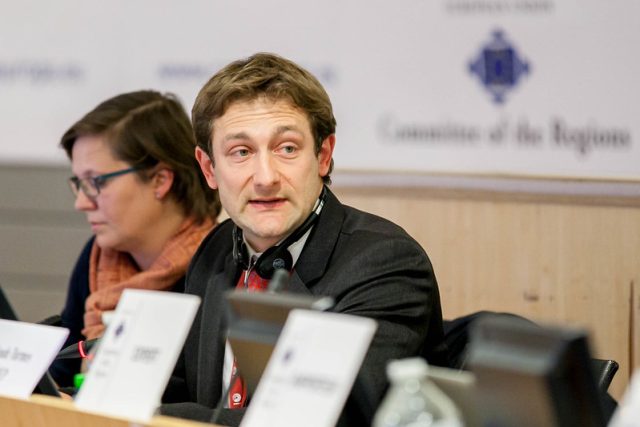
There is a cautious satisfaction among European farmers.
This is how they feel following the appointment of Christophe Hansen as the new Commissioner for Agriculture of the European Union.
In addition to dealing with the Commision’s agricultural policy, Hansen will be Ursula von der Leyen’s new man in charge to make peace with farmers, and deal with workers’ issues related to the consequences of the war in Ukraine, and other events, like the remaining sequels of the pandemic.
Luxembourgian Hansen, a member of the European People’s Party (EPP), has long maintained a connection with the countryside, as he comes from a farming family, and his cousin, Martine Hansen, is the current Minister of Agriculture of Luxembourg.
Hansen’s CV signals deep expertise and knowledge of the agricultural sector.
Hansen served as an advisor of Astrid Lulling, the first female MEP from Luxembourg and a trade unionist, on agricultural, environmental, and economic matters.
This is an appointment with which the farming sector can breathe a sigh of relief, but the challenges ahead are several, considering the discontent farmers have expressed on the Common Agricultural Policy (CAP) over the last year in major European cities.
There are also the upcoming bureaucratic hurdles Hansen must go through, hearings, lobbying, and so forth.
Awaiting the approval of the European Parliament for the various proposals, the choice of the Luxembourger by the President of the European Commission represents a new challenge for the MEP, as he will have to deal with numerous demands from farmers.
Nonetheless, his pick sends a message from the Commission as it sorely need to reconcile with a sector that lives in legislative and economic uncertainty.
Complex Challenges for Agricultural Well-being
Following various demonstrations by European farmers and livestock breeders, the start of the new Community Executive’s mandate will be marked by the negotiation of the next CAP, which will come into force starting in 2028.
This policy, which defines the economic aid and incentives for European farmers, has been the subject of intense criticism from both progressive sectors, who consider it insufficient in environmental terms, and from farmers, who see it as a bureaucratic burden that does not meet their needs.
In this regard, the European Commission hopes to carry out a series of significant reforms in community regulations, with the aim of combating abusive practices and ensuring that farmers and livestock breeders receive fair remuneration for their work and the goods they supply to the region.
Across Europe, von der Leyen’s choice has been welcomed, with organizations such as the European Environmental Bureau, represented by Sergiy Moroz, highlighting that Hansen “is a political animal” and knows “exactly how to manage stakeholders, who to have on board, and who to push a little further.”
He has received much support as he embarks on his new journey in the European Commission, but Hansen will face challenges such as food security, a key aspect that von der Leyen wants to turn into a 100-day action plan for agriculture.
The European agricultural sector has long been an economic and social pillar of the continent, and its modernization will be crucial to ensure its survival in a changing world.
Hansen will have to face pressure from environmental groups, but also from farmers who demand less bureaucratic intervention and more support to address the challenges of the global market and international competition.
Christophe Hansen faces a complex task. His appointment is a sign that the European Union is seeking a balance between the demands of the agricultural sector and environmental regulations.
The success of his mandate will depend on his ability to manage internal tensions within the European Commission and offer solutions that maintain the delicate balance between sustainability and agricultural productivity.



 Subscribe
Subscribe